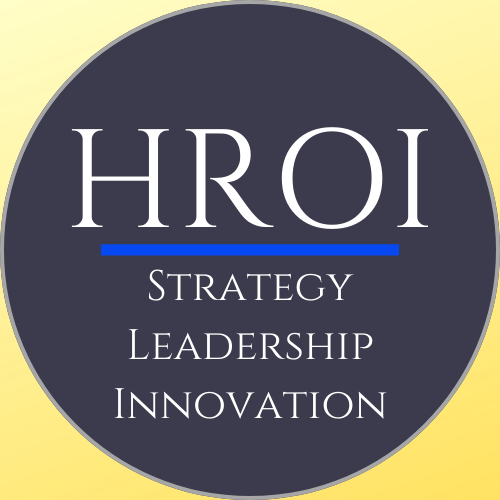Introduction To Data & AI Strategy
LEARN CRITICAL FRAMEWORKS TO TURN DATA & AI INTO REVENUE & COST SAVINGS

$595
Start & Learn On Your Schedule.
All Self-Paced Courses Include Office Hours.
Optional 1on1 Support Is Available.
Get Reimbursed By Your Employer
Built For Technical & Nontechnical backgrounds
The curriculum is designed for technical professionals with no business, leadership, or strategy background. Get certified as a Data & AI Strategist from any starting point.
The certification course also supports current business leaders and strategists looking to transition into better-paying, more secure AI Strategy roles. Learn innovation strategy, AI transformation, culture change, and opportunity discovery frameworks without all the technical jargon.
What People Are Saying About The Course
Why Get Certified?
Benefits
Data & AI Strategy Roles Are Seeing Rising Demand & High Salaries
Get Access To A High-End Career Path With More Options For Advancement
The Frameworks & Case Studies Prepare You To Interview Successfully
Greater Security From Automation, Layoff Cycles, & Team Reorgs
Improve Your Qualifications For Senior Leadership Roles
Advantages
An Instructor With Real-World Experience & Multiple Implementations
The Innovative Course Design Prepares You To Do The Job VS. Memorize Facts
Students Report Long-Term Results & Career Impacts
Longevity: One Of The 1st Certifications Of Its Kind With A 5 Year Track Record
Exclusivity: Be One Of The Few Professionally Certified AI Strategists
Your Learning Outcomes Are Our Highest Priority.
That's why support doesn't end when the class is over. You get access to office hours and email support.
future proof your career today.
Course Overview
1. Introduction
- Course Introduction
- Why Do We Use Systems, Models, & Frameworks For Strategy?
- What Is An AI Strategy?
- A Real-World AI Strategy: SK Telecom
- What Happens Without An AI Strategy
- McDonald’s Case Study: Where Does Data & AI Strategy Start?
- McDonald’s Drive-Through Case Study
- Building A Data & AI Strategy
2. Business Fundamentals In The Data Age
- The Business Model
- Examples Of Real World Business Models
- The Operating Model
- The Technology Model
- The Value Stream
- Competitive Analysis
- Introduction To KPIs
- KPI Maturity
- Key Definitions And Terms
3. Integrating Data & AI Strategy Into Business Strategy
- The Technology Model: Where To Begin?
- Why Does The Business Need Data Analytics & AI Strategies?
- Data Strategy: Definition & Objectives
- AI Strategy: Definition & Objectives
- The Data Monetization Catalog
- Case Study: What Happens When Technical Strategy Doesn’t Align With Business Strategy?
- Case Study: Apple Using Data As A Competitive Advantage
4. Culture Change Frameworks
- Justifying The Need For Change
- Why People Resist Change & How To Fix It
- Evolutionary Decision Making
- Introduction To The Continuous Improvement Flywheel
- Time Travel: Why We Say Can Sound Ridiculous
- The Implications Of Extending Decision Time Horizons
- Wrapping Up & Connecting To The Business
5. Managing Innovation
- Introduction & Business Problems To Solve
- The Disruptor’s Mindset
- Solving For Uncertainty & Risks That Come With Innovation
- Justifying Innovation Realities & Costs To The CFO
6. Strategy Planning
- The Story of Retail Pt. 1
- The Story of Retail Pt. 2
- Implications Of Data On Strategy Planning
7. Strategy Implementation
- Case Study: The Cautionary Tale Of Zillow
- Why Is Transformation So Hard?
- Case Study: Data & AI Maturity Drivers
- Getting Buy In From Senior Leadership
- Collaborating With External Teams
- Case Study: What Happens When Data Science Initiatives Fail?
8. Using AI For Operating Model Optimization
- The Core-Rim Model
- Where Do People Fit?
- The 3 Main People Groups
- The Implications Of Reducing Operating Complexity
9. Data Science & Strategy
- Becoming A Strategic Partner
- Decision Support Systems & KPIs
- The Data Science Value Stream
- Case Study: Microsoft’s Initial AI Product Strategy
- Capabilities Based Competition
- Case Study: TikTok vs Google. Competing On Best In Class Capabilities
- Case Study: Exploring Partnerships For Capabilities Acquisition
10. A Unified View Of Enterprise Transformation
- AI Transformation Roadmap: Capabilities
- AI Transformation Roadmap: Strategy Planning & Implementation
- AI Transformation Roadmap: Talent & Infrastructure
11. AI Platform Strategy
- Introduction To The 4 Main Business Platforms
- Building T-Shaped Platforms With Multiple Technologies
- SAP & OpenAI Case Studies
- Introduction To The Capabilities Maturity Models
- Calculating ROI For AI Initiatives
- ROI Calculation Exercises
- The Product, Data, & Design Maturity Models
- Advanced Capabilities Maturity Levels
12. Assessing the Business
- Introduction To The Assessment Framework
- Culture
- Leadership Commitment
- Operations & Structure
- Skills And Competencies
- Analytics-Strategy Alignment
- Proactive Market Orientation
- Employee Empowerment
- Opaque VS Transparent & Justifying Early Initiatives
13. Solving The Business’s AI Last Mile Problem
- The AI Last Mile Problem
- Introduction To The AI Governance Framework
- Commercialization & Monetization Phases
- Productization Phase
14. Data Product Strategy
- Introduction To Data Product Strategy
- Monetization Phase
- Productization Phase
- Commercialization Phase
- Key Implementation Points
- Messaging And Executive Communications Framework
- Implementation Cases And Examples
15. Implementation Cases
- Implementation Cases Introduction
- Implementation Case: Data Strategy
- Implementation Case: Data Monetization Catalog
- Implementation Case: Analytics Strategy
- Implementation Case: AI Strategy
- Implementation Case: Transformation Strategy
- Implementation Case: AI Governance
- Implementation Case: Pulling 3 Concepts Together
16. Decision Support Systems & KPI Maturity
- The KPI Maturity Model
- Introduction To Decision Support Platforms
- Case Study: Decision Chains & ROI
- Case Study: Gathering Decision Support Data
- Introduction To AI Strategy KPI Categories
- KPI Selection & Implementation
- AI Strategy KPIs
Make Your Own Opportunities & Define Your Impact
Start & Learn On Your Schedule.
All Self-Paced Courses Include Office Hours.
Optional 1on1 Support Is Available.
Frameworks That Address Real-World Challenges
Barriers You'll overcome
IBM’s Global AI Adoption Index lists the top 5 barriers to AI adoption & a holistic AI Strategy removes each one.
Limited Skills, Expertise, & Knowledge
Access to talent and building a successful internal training program requires alignment across the business. The AI product roadmap or project plan and value stream define the business’s need for capabilities holistically. They provide detailed guidance for hiring and upskilling programs.
Implementing Data & AI Is Too Expensive
AI Governance gives CxOs a framework to manage the value creation side of AI initiatives. The 1st phase estimates initiative value using a frontline approach. The 2nd phase assesses the solution’s feasibility and costs. Each iteration is a low cost lesson on identifying high value opportunities and minimizing solution costs. Nothing moves forward until there is a plan for returning value.
Project Complexity: Difficulty With Integration & Scale
Complexity is resolved by the AI Governance framework. Senior leaders manage the value creation without being pulled into managing the technology or workflows. That removes the complexity of oversight. Coordination across the business is a key driver for a holistic AI Strategy vs. a strategy limited to a few groups and use cases.
Lack Of Tools Or Platforms
Once business needs are defined by the AI Strategy artifacts, most firms find the tools and platforms they need to support data, development, and deployment.
Too Much Data Complexity
The Data Monetization Catalog is another artifact of the AI Strategy planning process. The data valuation process reveals which datasets can be used for model training and leveraged to address business challenges. Focusing on the highest value datasets reduces complexity. Data maturity progresses in phases.












